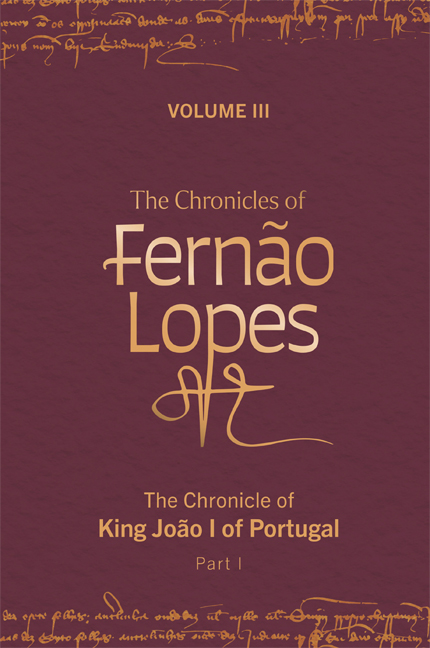Chapter 190 - Concerning the message that King Pedro sent to the Pope and the reply that he received
Published online by Cambridge University Press: 28 December 2023
Summary
The letter in question was sent to the Papal Curia. Pope John XXII, from whom King Pedro had been granted that general dispensation when he was still prince, was no longer alive. He was succeeded by Benedict XII; after him came Clement VI and then came Innocent VI.
A few years after these popes died, the death of Dona Inês took place; and just over two years later, King Afonso died. King Pedro was very unsure of what was true with regard to his marriage, either because of his own understanding of it or because he was told by one of his advisers, namely whether as a consequence of that dispensation and on the strength of that union, the marriage was as it should be and his sons were legitimate, and able to inherit and succeed to the throne of the kingdom on the death of Prince Fernando his first-born son and heir, who was entitled to succeed to the throne by direct line of inheritance.
Although King Pedro had received her [Dona Inês] as his legitimate wife, he had every reason to have his doubts about the validity of that marriage. That was because, through a general dispensation that was granted when he was young, he was betrothed to Princess Blanca, the daughter of Prince Pedro [of Castile], who died in the vale of Granada, whom he later did not wish to marry. When the time came for him to take Princess Constanza, the daughter of Don Juan Manuel, as his lawful wife and their marriage was to be blessed in Lisbon, some people already doubted whether under the terms of such a dispensation he could marry her or not. As the king his father had ordered that all the prelates of the land should attend the marriage blessing, it happened that Dom Gonçalo [Pereira], the then Archbishop of Braga, had his doubts whether, under the terms of the dispensation, they could marry each other.
First, he wrote to Dom João, the bishop of that city [Lisbon], and asked to be informed and to be sent a formal declaration as to whether he could attend the ceremony without danger to his hierarchical position.
- Type
- Chapter
- Information
- The Chronicles of Fernão LopesVolume 3. The Chronicle of King João I of Portugal, Part I, pp. 394 - 398Publisher: Boydell & BrewerPrint publication year: 2023

